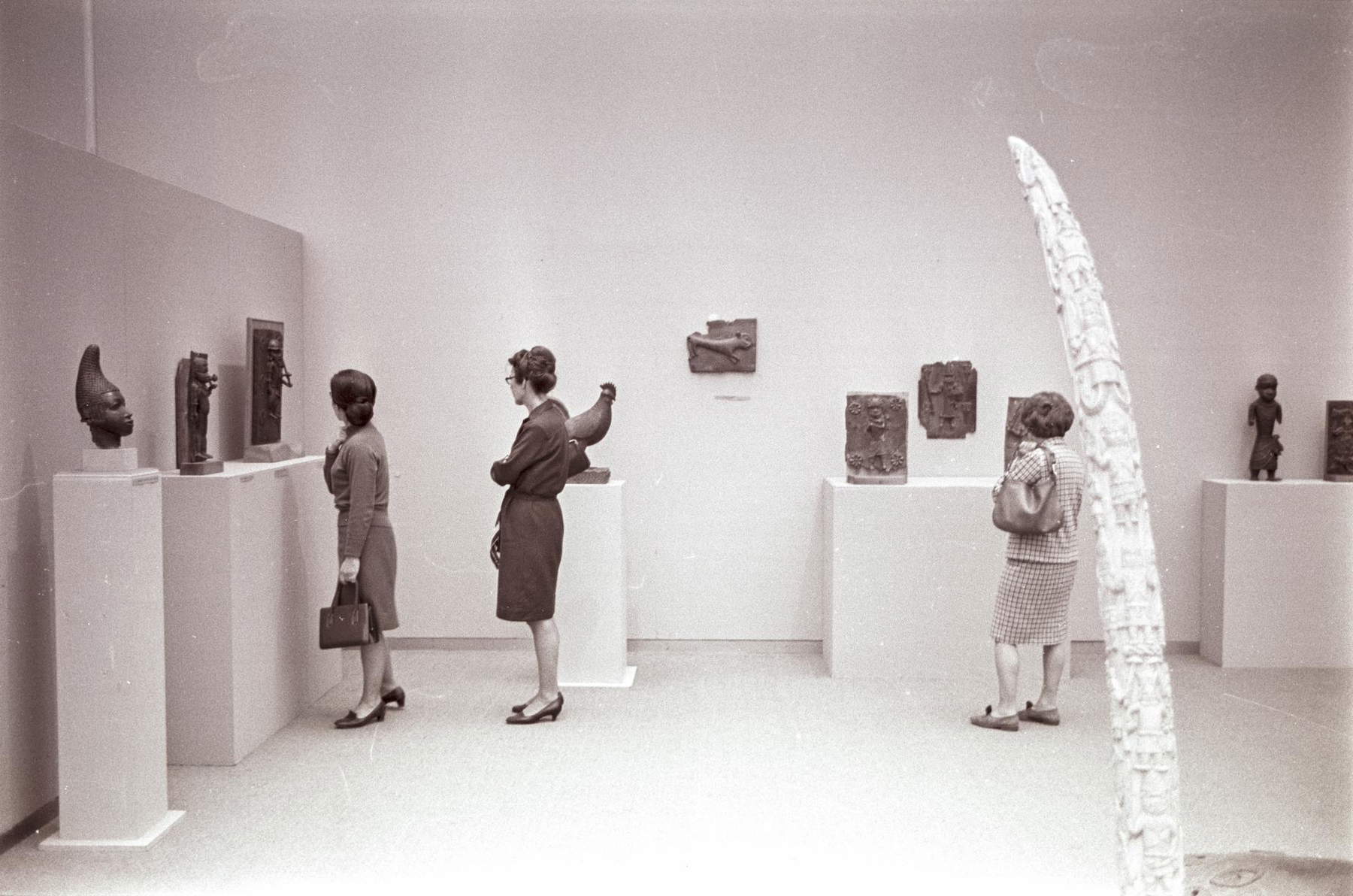An exhibition in Zurich on the looting and restitution of works from the Kingdom of Benin
From Aug. 23, 2024, to Feb. 16, 2025, the Rietberg Museum in Zurich presents the exhibition “In Dialogue with Benin: Art, Colonialism, Restitution,” a project that aims to illustrate the past, present and future of the cultural heritage of the Kingdom of Benin in present-day Nigeria. The four curators are Josephine Ebiuwa Abbe, Solange Mbanefo, Michaela Oberhofer and Esther Tisa Francini, who are active in fields as diverse as theater studies, architecture, art anthropology and history. The exhibition was organized in close collaboration with scholars living in Nigeria and representatives of the diaspora. The exhibition highlights the importance of Benin art and addresses the looting of art assets by the British colonial power and their sale on the international market, while also addressing the issue of restitution. The Rietberg Museum did not want to show the history of Africa only from a Western perspective, but planned and implemented the exhibition in close collaboration with Nigerian partners and members of the Pan-African diaspora in Switzerland. The museum also commissioned new works, made in the workshops of bronze foundrymen in Benin City. In addition, contemporary artists such as Cherry-Ann Morgan and Kwaku Opoku have grappled with themes such as slavery and cultural heritage, memory and healing. Welcoming visitors is Omoregie Osakpolor ’s photograph of Igun Street in Benin City, home of the founders’ guilds and an artistic center of excellence. A new brass sculpture and funeral songs by Josephine Ebiuwa Abbe then express Edo society’s unceasing grief over those tragic events.
The core of the exhibition, is divided into four themes that illustrate and present the artworks following the concepts of: “Memory and Architecture,” “Commemoration and Ritual,” “Prestige and Performance,” and “Past and Present Artistic Production.” To place Beninese production in the broader context of African art history, the Rietberg’s sixteen Beninese objects were joined by works from the African collection belonging to the museum and loans from the Bernisches Historisches Museum and the Musée d’ethnographie in Neuchâtel. The research on the provenance of the artworks aims to do justice to countries afflicted by colonialism by bringing forgotten stories to light. In fact, the museum wanted to dedicate the outside area of the exhibition to a path that traces the history of the objects, from their creation to their current location in Europe. Within the exhibition are maps and archival documents, which highlight political and economic relations, the consequences of colonial occupation, transactions in the global art market, and the background of collectors. With the installation It is Complicated, Caribbean artist Cherry-Ann Morgan addresses the theme of slavery and her own African roots, while Nipadu by Ghanaian Kwaku Dapaah Opoku offers an artistic interpretation of the looting of Benin by comparing museums to burial grounds. Finally, a chronological overview presents the history of the Kingdom of Benin and its global ramifications up to the Swiss Benin Initiative. One of the cornerstones of the path that led to the initiative and influenced the restitution debate is the Festival of Arts and Culture (FESTAC) held in 1977 in Nigeria to celebrate the cultural plurality of the Pan-African world.
The exhibition is held as part of theBenin Switzerland Initiative, launched in 2020 and supported by the Federal Office of Culture. Under the guidance of Michaela Oberhofer and Esther Tisa Francini of the Rietberg Museum, eight Swiss museums are examining objects from Benin in their collections with the help of their Nigerian colleagues. In addition, with the same ticket, visitors will have free access to the exhibition “kolonial - Globale Verflechtungen der Schweiz,” which will be held at the Landesmuseum Zürich from Aug. 13, 2024 to Jan. 19, 2025. The collaboration considers issues such as colonial injustice and restitution, cultural heritage and identity: the goal is to reframe heritage histories together and seek good solutions for the future on both sides. Other exhibitions and events on the management of Benin’s cultural heritage in Switzerland are taking place at partner museums: the Musée d’ethnographie de Neuchâtel, the Musée d’ethnographie de Genève, and the Museum of Ethnography at the University of Zurich. On the occasion of the exhibition, the volume In Bewegung. Benins Kulturerbe in Schweizer Museen (On the Move: Benin’s Cultural Heritage in Swiss Museums), edited by Esther Tisa Francini, Alice Hertzog, Alexis Malefakis and Michaela Oberhofer, Zurich 2024, published by Scheidegger & Spiess.
Opening hours: Tue-Sun 10 a.m.-5 p.m. | Wed 10 a.m.-8 p.m.
Rates: Adults - CHF 18 / Reduced - CHF 14
Image: View of the exhibition “Art from Black Africa” at Kunsthaus Zürich. Zurich, October 31, 1970-February 10, 1971. Kunsthaus Zürich, Library, Photo: Walter Dräyer.
 |
| An exhibition in Zurich on the looting and restitution of works from the Kingdom of Benin |
Warning: the translation into English of the original Italian article was created using automatic tools. We undertake to review all articles, but we do not guarantee the total absence of inaccuracies in the translation due to the program. You can find the original by clicking on the ITA button. If you find any mistake,please contact us.




























